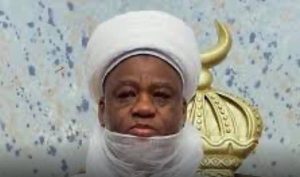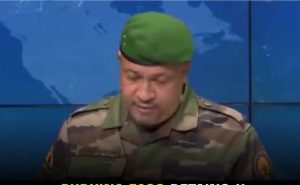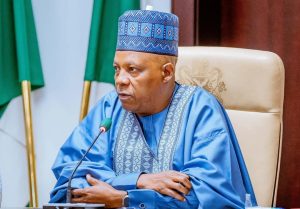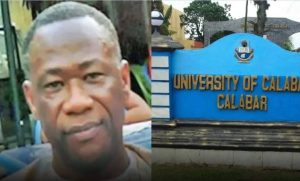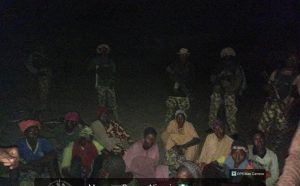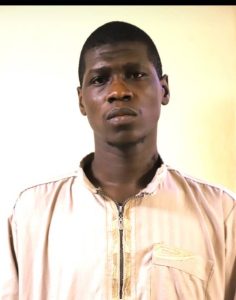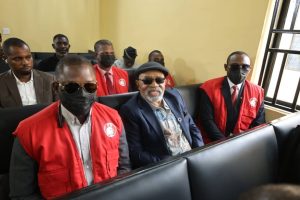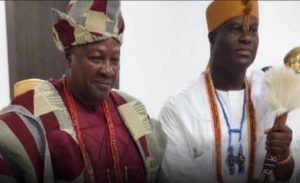By our Reporter
The Supreme Court has upheld the Federal Government’s appeal challenging the verdict of the Appeal Court which dismissed the charges against Nnamdi Kanu.
In upholding the government’s appeal, the Supreme Court held that Kanu must face trial at the Federal High Court.

The Supreme Court in the judgement delivered by Justice Emmanuel Agim, but prepared by Justice Garba Lawal, held that the Court of Appeal was wrong to rule that Kanu could not be tried again based on the illegality perpetrated against him by the Federal Government, following the invasion of his home.
Also, the Court held that although the Nigerian Government was reckless and unlawfully rendered Kanu from Kenya, such unlawful act has not divested any Court from proceeding with trial.
Justice Lawal said that no Nigerian law was cited in the suit seeking Kanu’s release on the grounds of unlawful abduction from Kenya.
According to the Court, at the moment, the remedy for such an action is for Kanu to file a civil matter against the act instead of removing the powers of the courts to continue with his trial for alleged criminal charges.
Kanu was not present in court for the judgement, the latest development in a case that has lasted for years.
Friday’s judgement was delivered amid tight security and followed calls by Ohanaeze and some others for Kanu’s release.
Kanu who is the leader of the proscribed secessionist group, the Indigenous People of Biafra (IPOB), has been in detention since June 2021 when he was re-arrested in Kenya and brought back to Nigeria.
He and his legal team have accused the Federal Government of abducting him and illegally bringing him to Nigeria. He has challenged the alleged extraordinary rendition in court.
Upon his re-arrest in 2021, he was arraigned before the Federal High Court in Abuja on four charges of treasonable felony, conspiracy to commit treasonable felony, terrorism, illegal importation of radio equipment, and defamation of former President Muhammadu Buhari
The charges were later amended to a 15 bordering on terrorism and membership of a proscribed group.
Justice Binta Nyako of the trial court had in her ruling dismissed eight out of the 15 charges, saying that Mr Kanu had questions to answer in relation to the remaining seven charges.
Dissatisfied with the ruling, Mr Kanu appealed to the Court of Appeal, which dismissed the remaining charges and ordered that Mr Kanu be released.
In a twist, the court then granted a stay of execution of its judgment after the Federal Government told the court it would be appealing to the Supreme Court.







